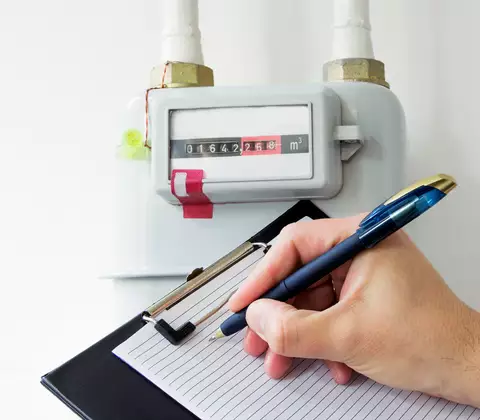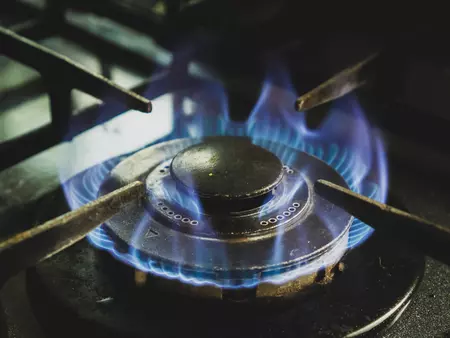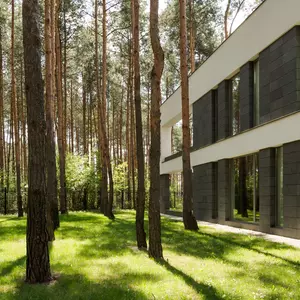
Average gas consumption
Calculate & estimate
What is your average gas consumption?
Many tenants and home-owners want to know how high the gas consumption is in their home or in individual apartments or rooms. Unfortunately, calculating this value is not as simple as for electricity consumption, where you simply need to know the number of kilowatt hours (kWh) used. Average gas consumptions are also stated in kWh, but the calculation is affected by multiple factors.
Why is it important to know the average gas consumption?
The costs of heating and hot water are the most significant expenses on utility bills next to the cost of electricity. It makes no difference if you are a tenant or owner. The energy-efficiency of a building is the most important aspect, but many other factors also influence consumption.
The most common reasons for calculating the gas consumption of a building are as follows:
- To gain an overview of the overall energy costs of the house
- To compare your own average gas consumption with that of other buildings
- To determine any potential savings
- To monitor costs to be able to respond better to fluctuating prices
- The average gas consumption of German households is rising.
Total gas consumption in Germany has risen sharply over recent years and decades. In 1982, total consumption was still only 51.8 billion cubic metres. By 1996, it had risen to 83.1 billion cubic metres. The latest peak was reached in 2017 at 90.2 billion cubic metres.
One reason for this is undoubtedly that previously widespread oil and coal-fired heating systems were being replaced with modern gas heating systems more and more frequently. German reunification also played a significant role in the 90s. Modern gas heating systems truly are much more efficient and reduce the average consumption of a home, particularly if all other factors, such as thermal insulation and heating practices, are well coordinated.
Particularly powerful: WOLF gas condensing technology, whether used in hybrid systems of gas plus solar thermal technology, cutting-edge condensing appliances or combi boilers with integrated DHW heating. Our experts can help you to find the ideal heating system for your lifestyle.
How can I calculate the gas consumption of my home?
The easiest way to determine your average gas consumption is by using your gas bills from the preceding few years. The more reference values you can find, the better. To find your average monthly consumption, just divide the respective annual consumption by twelve.
You can also make rough calculations using average values and your floor space in square metres, but these are often less informative than the actual reference values due to various influences.
Tip: your utility bills will usually show your consumption profile over recent years.

Please note:
- A home housing a single family will have very different gas consumption to an apartment building. The latter will often include a community charge (e.g. for heating the stairwell, basement laundry room etc.)
- Your gas consumption will also be affected by whether DHW heating is provided by the gas heating system or gas is used exclusively to heat the building.
Calculate by square metres
- Divide your annual consumption by your living space to find the average annual consumption per square metre.
- This can be helpful for calculating potential savings when purchasing a new heating system.
If you do not yet have any annual statements, you can read the value from your gas meter or heat meter at regular intervals and use it to extrapolate the resulting values after a few months. This mean value is usually relatively close to the actual consumption. However, when reading your meters, bear in mind that consumption is higher during the winter months than during the summer. If you do not have enough time to do this because you need to know the gas consumption of your home at short notice (e.g. if you are moving house in the near future), an estimate can be helpful.
Estimating your average consumption
To estimate your average gas consumption, you can assume the following general parameters:
- Gas consumption per square metre of living space for two persons: approx. 14 cubic metres
- If additional DHW heating is provided by gas heating: approx. 16 cubic metres
Caution: these values are given in cubic metres. To convert this into conventional kWh values, multiply the value by 10.3.
How high is gas consumption in other households?
If you only need approximate values, you do not necessarily have to perform this calculation yourself. The average gas consumption in the household of an average family can be quite sufficient as a rough guide. Normal average values for gas consumption in kilowatt hours per year are in the following range, relative to the living space:
- 30 m2: 3800 - 5000 kWh
- 50 m2: 5000 - 7000 kWh
- 100 m2: 12,000 - 15,000 kWh
- Terraced house: 17,000 - 20,000 kWh
- Detached house: 23,000 - 30,000 kWh
The upper value should be assumed if the gas heating system also provides hot water. Naturally, your value can deviate greatly from the general average depending on the construction and insulation standard of the building. Passive house buildings in particular cannot be evaluated using this method as they consume considerably less energy.
Heating practices, the length of the heating period and interior design can all also influence your average gas consumption. Furthermore, older gas heating systems in particular are often less efficient than modern heating systems. If the conditions of two buildings are otherwise identical, good thermal insulation can produce a difference of between 30 and 50%. Similarly, your consumption will be higher if you also use gas for cooking, so you must always take these factors into account.
How can I reduce my average gas consumption?
Various measures can help to reduce gas consumption in your home. If your heating is still relatively new, optimising the thermal insulation (e.g. insulating water pipes) can prevent needless heat loss.
It is not quite so simple to install thermal insulation of this kind in apartments. The easiest way to save energy in this case is to change your heating practices. This naturally also applies to detached houses. Reduce the temperature when you are not at home. Lowering the temperature by just one degree can reduce your energy consumption by up to 6%.
Modern smart home solutions can help you to conveniently save energy and improve the comfort of your home at the same time. Talk to your heating technician to find out about the various options available. The WOLF Hotline can also provide you with expert advice.
Installing a new gas heating system in line with modern standards ensures more efficient combustion and lowers your pollution emissions. Replacing old non-condensing appliances with modern, new appliances with condensing technology is certainly an effective way of reducing gas consumption in the long term. An investment of this kind often brings good returns despite the high one-time purchase price.
Incidentally, if you have already optimised your consumption, you can effectively cut back on your bills by regularly comparing gas prices and changing your gas supplier as necessary.


